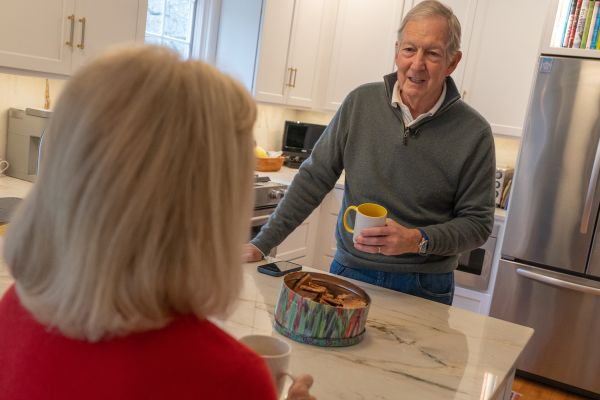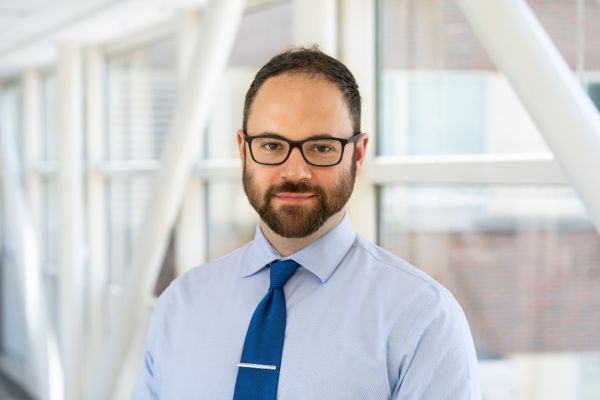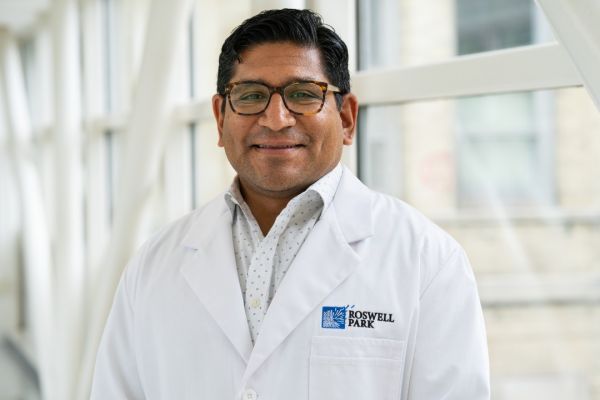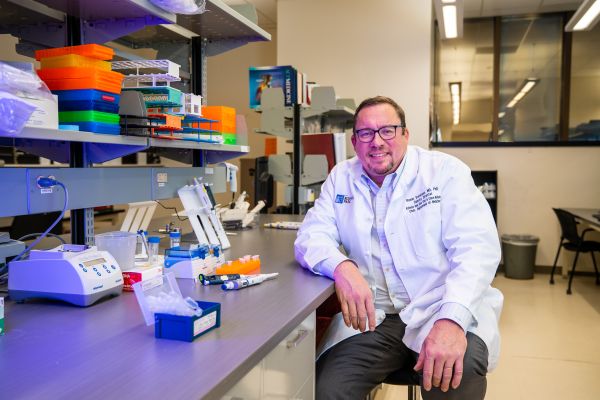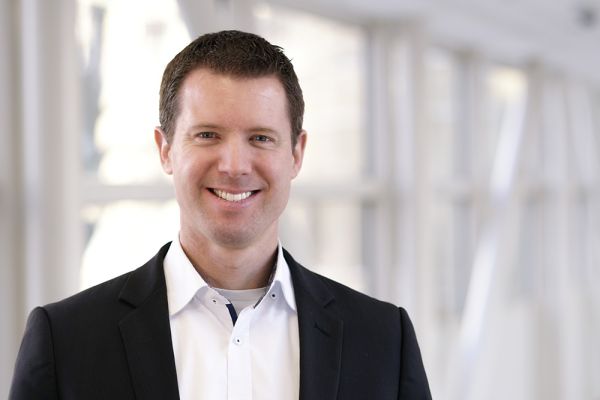Chimeric antigen receptor (CAR) T-cell therapy is a type of cellular therapy that re-engineers your own disease-fighting immune T cells against your cancer.
Years ago, physicians and scientists realized that T cells are an amazing component of the immune system, and that they can be harnessed to activate the whole immune system against cancer. “These cells can proliferate, persist, be targeted toward cancer, can have memory, and can last for years in a patient. Plus, they secrete small proteins that recruit other immune cells to the fight, too,” says Marco Davila, MD, PhD, Vice Chair for Cellular Therapies.
How CAR T-cell therapy works
Your T cells are collected from your blood in a process like a blood donation. Your cells are sent to a laboratory where a gene is inserted so that the cells will produce a protein called chimeric antigen receptor (CAR). This CAR protein helps your T cells find – and attach to – other specific proteins on the surface of the cancer cells, making it easier for the T cells to kill them. These supercharged T cells are multiplied into an army of millions and returned to you through an intravenous (IV) infusion. Then your T-cell army can hunt down and destroy the cancer cells.
First, you’ll undergo a short course of chemotherapy, generally over three days and typically as an outpatient. (This chemotherapy is NOT the high intensity chemotherapy associated with stem cell transplantation.) Receiving the actual CAR T-cell therapy (your millions of genetically engineered T cells) is a simple IV infusion administered as an inpatient in the hospital. However, the infusion itself is brief, less than a couple hours, and Roswell Park aims to eventually offer this as an outpatient procedure.
Current CAR T-cell therapies
CAR T-cell therapies have led to improved survival for patients with advanced blood cancers, such as leukemia, lymphoma and multiple myeloma that has recurred or resisted other treatments. Roswell Park offers FDA-approved CAR T-cell therapies for these cancer types:
Lymphoma
- Breyanzi (liso-cel)
- Tecartus (brexu-cel)
- Yescarta (axi-cel)
Leukemia
- Kymriah (tisa-cel)
- Breyanzi (liso-cel)
- Tecartus (brexu-cel)
- Aucatzyl (obecabtagene autoleucel)
Multiple myeloma
- Abecma (ide-cel)
- Carvykti (cilta-cel)
At Roswell Park, our patients have some of the earliest access to these novel cell therapies through clinical trials and TIL therapy was one of them. We offered it to melanoma patients, years before FDA approval and are really excited about the upcoming new cellular therapies we will offer through clinical trials very soon.Associate Director for Early Phase Clinical Trials for Solid Tumor Cell Therapies
In the pipeline
Roswell Park has committed the investment, resources and focus to accelerate the development of next-generation CAR T-cell therapies. Some highlights of this work include:
- Combining CAR T-cell therapy with other immune cells and components of the immune system to improve the treatment’s effectiveness.
- Identifying new antigens to re-engineer the T cells to target other cancer types.
- Breaking down the barriers presented by solid tumors to make this treatment effective for solid tumor cancers, which represent 80% of all cancers.
Currently, Roswell Park is conducting clinical trials of newer CAR T-cell therapies that target other cancer types, including acute myeloid leukemia (AML) and solid tumor cancers such as breast, lung, prostate and gastrointestinal cancers. The only way to access these emerging options is through enrollment in clinical trials.


